Faculty Members
- Babak Khazrai, Ph.D
- Taghi Zarrabi
- Pooyan Azadeh, Ph.D
- Hamid Askari Rabori, Ph.D
- Iman Fakhr, Ph.D
- Rebecca Ashooghian
- Niloofar Badrikoohi
- Mohammad-Rezâ Tafazzoli
- Madjid Tahriri, Ph.D
- Hamidreza Dibazar
- Prof. Mohammad Reza Azadehfar
- Sayid Hossein Meysami, Ph.D
- Mahmood Balandeh
- Ehsan Zabihifar
- Parichehr Khajeh
- Amirhasan Amin Sharifi
- Dean of the Faculty of Music, Since 2023/12/11
- Born 1975, Isfahan, Iran
- The faculty member of University of Art, department of Persian music
- Head of department (since December 2022)
- Member of Mahoor Music Quarterly Editorial Board
- Former member of Encyclopaedia Islamica Foundation (2010 – 2021)
Education
- 2012 – 2018 : PhD in Art Studies, Thesis title: “A Taxonomy of Overt and covert quantitative rhythmic cycles (Prosodic & Iqâic) in Persian Classical Music”, Supervisor: Dr. Mohammad Reza Azadehfar, University of Art, Tehran.
- 2006 – 2009: MA in Art Studies (Art Faculty, Shahed University, Tehran)
- 2000 – 2006: BA in Persian Music (Faculty of Music, University of Art, Tehran).
Books
- Jame al- Alhan,by Abd al-Qader Maraghi, edited by Babak Khazrai, Tehran (2009).
- Al-Risala al Sharafia, by Safi al –din Ormawi, edited and translated to Persian by Babak Khazrai, Tehran (2006).
Articles, Essays and notes
- More than 70 in encyclopedias and Journals.
Taghi Zarrabi was born on 20 February 1939, in Tehran. Following his primary school and passing the entrance exam, he entered the conservatory. After passing this course, he entered the field of composition and conducting orchestra with first class. In 1964, he performed Giuseppe Verdi's La forza del destino Opera with the Tehran Symphony Orchestra to complete his orchestral conduct project in the Farhang Hall and graduated from the Higher School of Music with first class again.
In 1978, he attended the Royal Marines School of Music in England to continue his studies and complete orchestra conducting courses. He achieved Band Master Degree, performed several concerts in England and obtained Music director's certificate.
He has been teaching in many educational institutes since 1980, and since 1993, he has been teaching as well as being the Head of Military Music department of the University of Art.
In 2003, Taghi Zarrabi received a doctorate in music from the Ministry of Islamic Culture. He is currently a member of the Council of House of Music.
Some of his works are:
- Trio in fugue form for violin, viola, cello
- Winter of 1357 overture in the chahargah scale for symphonic orchestra
- Overture of Bonding story in the Homayoun and Chahargah scale for symphonic orchestra
- Peace anthem for symphonic orchestra
- Tar and piano duet
- Violin and piano duet
- Several marches for military and symphonic orchestra
He received a doctorate in musical Arts from the Institute of Arts under the supervision of Professor Svetlana Sarkisian with the title "Folk songs arrangement for Choir in 20th-century Music" (Armenia, 2012). In 2006, he graduated from Yerevan State Conservatory after Komitas with a master's degree in composition in the class of Prof. Martin Israelyan, and in 2008 he graduated in a master's degree in choral conducting in the class of Prof. Tigran Hekekian. He also graduated from Tehran University in the field of Western Philosophy (1993).
Hamid Askari is especially active in choral music. He has composed works for the choir, and a collection of his compositions titled "New Plan" has been published (2013). He also published the book "Iranian Choral Music: A historical and analytical study" by Aban Publishing in 2022, which is the first work published in Iran in this field. Askari founded Ordibehesht Chamber Choir in 2008 and has led it in numerous concerts in Rudaki Hall and Vahdat Hall (Tehran).
He is the winner of two research awards: 1- Art article selected from the first National Humanities Texts and Book Criticism Festival (ISC) - Tehran 2016, and 2- Art article selected from the 15th Iran Book Criticism Festival - Tehran 2017.
Since 2015-2023, Hamid Askari has been working as the director of the ethnomusicology department
2016-2023/12/11 as the Dean of Faculty of Music.
- Assistant Professor, Department of Western Classical music Performance, Music Faculty, Iran University of Art.
- Educational vice-chancellor of Music Faculty, Chair of Department of Ethnomusicology.
- Violinist of the National Music Orchestra of Iran (2004-2009)
- Violinist of the Television’s Symphony Orchestra of the Islamic Republic of Iran (2004-2009)
- Adjunct lecturer at Tehran University since 2012 and adjunct lecturer at Islamic Azad University from 2011 to 2015
- Writing scientific articles, authoring and translating various specialized books in the field of Musicology, Performance and Violin Pedagogy.
- Holding many Workshops and Master classes in many Educational Centers and Music Festivals in Iran.
- Judging experience in the National Youth Music Festival, Art University Saba’s Music Student Festival, and The Book of the Year of the Islamic Republic of Iran.
- Research interests and fields: Historical Musicology, Period Performance Practice, Principles of Performance and Musical Interpretation, Instrumental Pedagogy, Musical Semiotics and Interdisciplinary Studies in Music in the fields of Poetics, Rhetoric and Psychology.
- Master’s Degree in Piano Performance from Art University’s Music Faculty under Prof. Dilbar Hakimova, 2009.
- Granted Scholarship for further studies in Composition at University of Cincinnati College-Conservatory of Music (CCM) under Prof. Michel Fiday, 2014.
- Admission to Armenian National Science Academy’s Music Faculty to pursue a PhD in Musicology, 2015.
- Bachelor’s Degree in Piano Performance from the Faculty of Art & Architecture, Azad University, under Prof. Gagik Babaiyan, 2005.
- Attended Master Classes in Piano Performance under Prof. Marine Abrahamyan and also in Composition under Prof. Ashot Zohrabyan at Komitas State Conservatory, Yerevan, Armenia 2005-2012.
- Attended Master Classes in Piano Performance under Prof. Segei Babayan and also in Composition under Prof. John Adams at Cincinnati College of Music and under Prof. Ian Krouse at UCLA Herb Alpert School of Music, USA 2014-2015.
Performances
- Numerous Solo and ensemble performances at Tehran’s Komitas Hall, Vahdat Hall, Roudaki Hall, Tehran University’s Avini Hall, Niavaran Palace, Khachaturian Hall in Yerevan and Ajemyan Hall in Gumri and The Corbett Theater in Cincinnati Conservatory.
Honors
- Award and prize winner at the “Biennial Piano Competitions”, Tehran 2004 and 2006.
- Award winner at the “5th National Student Competition”, Piano Performance, 2004.
- Candidate for “UNESCO’s Dgerassi Resident Artist Program" Composition Competition Special Offer, San Francisco, 2006.
- Selected top student in the First Festival to Honor Outstanding Music Students, Azad University. 2006.
- Selected as outstanding Performer and Composer in Yerevan’s "One Nation- One Culture Festival", 2008.
- Award winner at “Fajr Festival” Composition Competition, 2009.
- Selected as top composer by Armenian Culture Ministry and awarded a recording of the selected piece for "Anthology of Armenian Chamber Music”, 2012.
Performed Pieces
- Performed pieces by Dilbar Hakimawa, Asal Hanachi, Jabiz Zarbakhsh, Gregory R Evans، Brandon Wendt Gurgen Galstyan، Naregatsi Chamber Orchestra، Duo Ars Lunga, Delaram Foruzande, Sara Sufi Siawash.
- Recorded piece in the album “New Music in Iran Vol.4”, Mahoor Institute of Culture and Arts, 2021.
Publications & Didactic Activities
- Published Selected Piano Pieces, in “Iranian Contemporary Composers Vol.1”, Hamavaz Pablication, 2018.
- Published Sonata for Cello and Piano in “A Hundred Years of Cello Music in Iran”, Persian Dutch Network, Amsterdam 2021.
- Presented article as lecturer/researcher at "Third International Youth Conference", Komitas State Conservatory, 2016.
- Writing scientific articles and editing books in fields of Iranian composer’s piano compositions and piano performance.
- Held masterclasses in Piano Performance in Shiraz House of Art, 2007 and in Music Museum of New Julfa, Isfihan 2022.
- Teaching position at Tehran Music School ( girls branch) 2004-2009.
- Teaching position at Radio & TV University 2007-2008.
- Teaching position at Elmi Karbordi University (Art & Culture), 2010-2011.
- Teaching position at Tehran University’s faculty of Fine Arts, 2017-present.
- Teaching position at University of Art, 2012-present.
- Faculty Member of Department of Classical Music Performance at Music Faculty of University of Art, 2016-present.
- Head of the Composition Department 2016-2019.
- Educational vice-chair of the Music Faculty 2019-2020.
- Head of Classical Music Performance Department 2019 present
- Jury member in the “National Youth Music Festival”, “Barbad Piano Prize” Competitions, “Saba Students festival of Music Faculty”, and “Rooyesh Music Festival” of University of Art.
- Founder and Artistic Director of “A Corner Glimpse”( Negahi az Konj) 14 Piano Recital series and premiere of new pieces by Iranian Composers, since 2015.
Education:
- M.S. in Music from University of Art, Tehran‐Iran, 2005
- Graduated Top student of University of Art in the year 2005
- Introduced as an elite student to University of Art to the ministry of science of Iran
- Bachelor's degree in Music, Islamic Azad University, central Tehran, 2000
- Music Diploma from the Tehran Conservatory of Music, 1981
Work experience:
Tehran conservatory of music 1985‐2004
- Taught advanced classical piano techniques
- Taught skills in accompaniment
Tehran Symphony Orchestra and Choir 1988‐2004
- Choir Soloist pianist
- Symphonic orchestra Soloist pianist
- Symphonic orchestra Accompanying pianist
- Ability to transpose on the spot highly desired
- Responsible for most pieces are piano transcriptions create from works by composers
Azad university of Tehran 1996‐2004
- Taught advanced piano playing skills
- Taught sight reading skills
- Taught advanced Skills in accompaniment
Iran University of Art, 2004‐CURRENT
- Taught advanced classical piano techniques
- Taught advanced sight reading ability
- Taught advanced skill in orchestra and vocal accompaniment
- Taught accommodation
Management:
- Global classical music Group management university of art 2007-2012
- Management in Farabi international campus of the university of art 2014-2016
Articles:
- Memorizing techniques of musical pieces and study of their effectiveness on piano performers Case study: Piano students in Tehran. Published in the research journal of the University of Art (Journal of Dramatic Arts and Music volume 12 , no 25).
- Comparative Analysis of Robab's Intervals with the Zarlinian scale. Published in Journal of dramatic arts and music Journal of drama c arts and music volume 27, No. 3
- A Comparative Study of the Performance of Rubinstein and Horowitz from Performance Technique in Chopin's Fantasy Impromptu Opus 66 (International Journal of Literature and Arts IJLA New York) Published 2022
Performances:
- Schumann’s piano concerto Opus 54 with the orchestra of the Faculty of Music of the University of Art.
- Bach’s Harpsichord concerto no.5 MWV 1056 with the orchestra of the Faculty of the University of Art.
- Roudaki Tehran Chamber Orchestra
- Performing the program in several periods of Fajr International Music Festival.
- Performing the program in several periods of Jasmine Flower Women’s Festival.
- Arranging pieces for the women’s orchestra of Iranian and Local Azebaijani folklore pieces for the women’s ensemble dramatic operettas.
- Pianist of the Avaz mellal group
- Pianist of the Avaz shames group
- Pianist of the Sahar’s group
- Pianist of the Ordibehesht choir group
Mohammad-Rezâ Tafazzoli was born in Karlsruhe, Germany, in 1974. His primary music studies were at Tehran Music Conservatory, in 1988. He graduated from the same conservatory in 1992. He continued studying music in Islamic Azad University-Faculty of Arts and Architecture from 1993 to 1999. He received his education in theory and composition under supervision of masters such as Mohsen Elhâmiân, Mas'ud Nâdertabâr, Hasan Riâhi, Mehrân Rohâni, Farhâd Fakhreddini, Mostafâ Kamâl Purtorâb, Shâhin Farhat, Alirezâ Mashâyekhi, and Mohammad-Sa'id Sharifiân.
He entered N. A. Rimsky-Korsakov Saint Petersburg State Conservatory in 2002. There, he trained with Boris Tishchenko, a notable student of Dmitri Shostakovich. He was also trained by masters like Anatoly Milka and Igor Rogalev. In 2007, he finished his studies, receiving a “red” diploma, from the Conservatory and returned to Iran. Tafazzoli is now a lecturer at University of Art, Faculty of Music as well as Tehran University’s Faculty of Fine Arts, and he is a faculty member at the former university.
Madjid Tahriri (1981 Tehran) is an Iranian composer. He holds a Bachelor’s degree of Arts (piano) from the Azad University, Tehran in 2004 and was pianist in the Iranian „Melal-Orchestra“. From 1995 to 2006 he took lessons in piano, music theory, ear training, counterpoint, harmony, Orchestration and composition with Afshin Rabetian, Peyman Soltani, Chista Gharib, Dr. Hasan Riahi, Mostafa Kamal Pourtorab, Farid Omran, Sharif Lotfi and Farhad Fakhreddini. In 2012 he obtained his diploma in instrumental and electronic composition with Prof. Dirk Reith, Prof. Günter Steinke and Prof. Thomas Neuhaus and in 2018 he completed his PhD in musicology under the supervision of Prof. Dr. Andreas Meyer at the Folkwang University of the Art in Essen, Germany.
Madjid Tahriri’s music is performed at international festivals in Europe, Asia and America. In 2009 he was selected for the interdisciplinary competition and workshop „operare 09“ in Berlin. In the same year Madjid Tahriri obtained the Folkwang Price in the category composition. In 2009 he obtained an exellency scholarship from the Folkwang University of the Art and a DAAD-scholarship.
In 2010 he was selected for the interdisciplinary workshop "Feldstärke International 2010“ in Essen, Paris and Istanbul. In 2011 Madjid Tahriri was awarded the Gigahertz Production Prize for electronic music from the Center for Art and Media in Karlsruhe (ZKM) and The Experimental Studio in Freiburg, Germany. Madjid Tahriri took masterclasses with Brian Ferneyhough, Chaya Czernowin, Vinko Globokar, Mark Andre, Enno Poppe, Detlef Heusinger, Manos Tsangaris and Pierluigi Billone. Besides his artistic work Madjid Tahriri was teaching at the Folkwang University of the Art from 2010 until 2018. Currently he is working as Assistant Professor and director of the Composition Department at Iran University of Art.
His compositions have been published at Hermes Records (Trio-1, 2007) and on the „Deep Wireless CD No. 7“ by the canadian organisation Naisa in 2010. His book „Iranisch-europäische Instrumentalmusik im Kontext der Modernisierung der iranischen Musik und des iranischen Musiklebens ab 1850“ (in German language) has been published by LIT Publishing in Berlin in 2019. Madjid Tahriri is one of the founders of the „Iranian Society of Contemporary Composers“ (ISCC) in 2000. The aim of this society is to raise the acceptance of contemporary music in Iran through concerts, articles and lectures. He is a member of the „Society for Contemporary Music Ruhr“ (GNMR) in Essen and a member of the „Association of Iranian Contemporary Music Composers“ (ACIMC) in Paris.
Hamidreza Dibazar was born on April 12, 1971-Tehran. As a child, he was introduced to the world of music with the guidance of his father. At the age of fourteen, he started learning the piano with Marie Youssef. In 1987, he entered the Conservatory of Music. In this period, he started composing by composing a duet for the horn, and in 1991, he graduated with the specialized French horn instrument major under the supervision of Sharif Lotfi. After entering the Faculty of Music, University of Art, he studied Iranian music with Mehrabano Tawfiq with setar instrument and got acquainted with Iranian folk music. He completed his studies for bachelor’s degree in music composition (1997) under the supervision of Ahmad Pejman by composing a piece named Oruj (the Ascension) for the symphony orchestra and in the first master's course (2001) by presenting a symphonic movement (chosen as the superior thesis of the Faculty of Music of the University of Art). He has also participated in the master classes of conducting by Iraj Sohbai, composing and conducting by Thomas Christian David (1925-2006). Debazar's works includes symphonic, chamber, choral, electronic music, and soundtracks for short and long films and television series. He has created his personal style with a combination of all kinds of music using Iranian and non-Iranian acoustic and electronic instruments (as the sound producers). He has won awards such as first place in music composition at the Mehr Cultural Festival (2008) and song and sports composition award at the International Olympic Committee (2008 Beijing Olympics). Debazar has been a member of the Faculty of Music, University of Art since 2007 and was the dean of the same faculty from 2013 to 2016. He is also the founder of Foozhan Orchestra (1997) and Foozhan Music Academy (2016).
Albums:
- Three points, (an unreleased album, a collection of pieces made in different years, as a result of
- Dibazer's deduction about the movement of surrealism).
- Eve Red Apple Suite, (1997)
- Flight Island, (Recorded by Foozhan Orchestra, 1998).
- Jesus Comes Suite, (Unreleased album, 2001).
- Collage, (unreleased album, 2008).
- The Corner, (unreleased Album, a Collection of Secret Suite and Landing in a foreign land Suite, 2009).
- Boom, (Opus 8, recorded by Foozhan Orchestra, 2013).
- Azma, (Opus 9, recorded by Foozhan Orchestra, 2016).
Compilations:
- Essay from epic to epic in the book of epic music (2011), (analysis of two works based on Ferdowsi's Shahnameh, opus 6 prayer and 7 epic, by Hamidreza Dibazar).
- It's never too late, a comprehensive method of learning music, introductory course, first volume, (2016).
- Essay on barriers to evaluating and valuing music performance, (Journal of Performing Arts and Music, Fall 2017, Volume 9, Number 17).
- Solfège, sight and singing skills, (2018).
- It's never too late, a comprehensive method of learning music, introductory course, second volume, (2022).
Single pieces:
- Quintet for woodwind instruments in memory of Morteza Hananeh, (1989, Rudaki Hall, conducted by Hamidreza Debazar).
- A symphonic movement, (Opus 1, 2000, Vahdat Hall, performed by Tehran Philharmonic Orchestra, conducted by Sharif Lotfi).
- String Quartet, (Opus 2, 2010, Arasbaran Academy, Tehran String Quartet performance).
- The birth, for piano, tambourine and choir based on poems by Molana, (Opus 3, 2003, Farabi Hall and Arasbaran Cultural Center, conducted by Ali Bastani-Najad).
- Miniatures for piano, (Opus 4, 2007, Rudaki Hall, performed by Kaveh Salehi).
- From Sol to Sol for flute, clarinet, guitar, cello and piano, (opus 5, 2018, University of Florida 2019).
- Prayer, (Opus 6, 2007).
- Epic, (Opos 7, 2008).
- Spring waiters, (.(1998
- alam, (2001).
- When you are not present, (2008).
- ghand,.(2008)
- sobhgahi,.(2008)
- It is morning, from the collection of my fingerprints, (2012).
- Anthem of the University of Art, (2014, performed and recorded by the Choir and Orchestra of the Faculty of Music of the University of Art, conducted by Hamid Reza Debazar).
- Event number 1.
- The moon and night.
- Leadership activities:
- Quintet for woodwind instruments in memory of Morteza Hananeh (1368, Rodaki Hall).
- All Foozhan concerts (since 1377, Farabi Hall, Arasbaran Cultural Center, Avini Hall, International Broadcast Conference Hall, Niavaran Cultural Center, Ivan Shams Hall, Shahr Theater and Vahdat Hall).
- Collage concert (1387, Vahdat Hall).
- Mehestan Orchestra, (2018 and 2019, Rudaki Hall).
- Kohan kaman String Orchestra, (2012, Rudaki Hall).
- Orchestra of the Faculty of Music of the University of Art, (from 2013).
- Film and series music:
- Tea and smile, (1990).
- Bright night, (1992).
- Eye of the heart, (1993).
- Free reality, (1995).
- Eve's red apple, (1997).
- Jesus is coming, (2001).
- Photographer without a camera, (2008).
- Landing in a foreign land, (2006).
- The secret, (2008).
Video arts:
- Rust of the universe, (2014: as a composer, screenwriter and actor). The selected work of the Maiden video art festival in Athens, Greece.
- The train that never stopped, (2015: as a composer). The selected work of the German Video Art Festival, the selected work of the Buenos Aires Video Art Festival (Argentina).
- Smoke and dream, (2015: as a composer, screenwriter and actor). The selected work of the German Film Festival, the selected work of the Johannesburg Film Festival, the selected work of the Indian Creativity Carnival Festival, the selected work of the American Torrance Museum Film Festival.
- A seat for everyone (2019: as a composer, screenwriter and actor). The selected work of the Casco Film Festival in Peru, the selected work of the Blue Horizonte Film Festival in Brazil, the selected work of the Kolkata Film Festival in India, the selected work of the Berlin Film Festival in Germany, the selected work of The winner of the Kalamata Film Festival in Greece, the winner of the Addis Ababa Festival in Ethiopia, the winner of the Cologne Film Festival in Germany, the winner of the Torrens Les Museum Film Festival. Angels in America, the selected work of the Moscow Film Festival in Russia.
- 937, (2020: as a composer and screenwriter). The selected work of the Berlin Media fest festival, the selected work of the American Torrance Museum Film Festival.
Mohammad Reza Azadehfar is a full professor in Ethnomusicology at Iran University of Art and former dean of Faculty of Music there. He earned his PhD from University of Sheffield followed by a Post Doc at SOAS University of London. He also spent some 20 years as an Iranian Santur performer. His research and publications focus on Iranian music and interdisciplinary studies. He has received five grants for researches from University of London, University of Art, and Iran National Science Foundation. Azadehfar’s book Melodic Structure in Iranian Music won the biannual prize for best Iranian music study at the Iranian National Music House in 2019.
- 1993 Bachelor of Arts in Music, Iran University of Art.
- 1999 Master of Arts in Arts Research, Faculty of Fine Arts, Iran University of Art.
- 2009 Ph.D. in Arts Research, Iran University of Art.
Sayid Hossein Meysami was born in 1964 in Iran. His familiarity with music started with learning Santur in Qazvin. Before starting to study in university, he learned the theoretical issues of composition from Parviz Mansouri (expert in theory of music and western composition), Mohammad Reza Darvishi (expert in form in music and solfege) and playing Santur from Faramarz Payevar (master of Santur) in Tehran. He completed the University degrees: Bachelor of Music (Art University), Master of Art Research (Tehran University of Fine Arts) and Doctorate of Art Research (Art University) in Iran. He is a member of the faculty of Iran University of Art with the rank of associate professor now. Several books and articles have been published by him.
Position: Full-time faculty member of Iran University of Art
Rank: Assistant Professor
Skills
- 1981-1997 Playing Santoor (Mentored by: Mohammad Vakilha, Dr, Daryoosh Sefvat, Maestro Pashang Kamkar, Maestro Mohammad Reza Shafi'yan and Maestro Faramarz Payvar)
- 1984-1989 Courses in Western classical music composition (Western music theory, harmony, counterpoint, basics of Fugue writing, instrumentology, orchestration mentored by Maestro Parviz Mansouri; musical forms and solfège mentored by Maestro Mohammad Reza Darvishi)
Certificates and Honorable Mentions
- 2000 Selected participant at the First Payame Noor University Students of Western Iran Music Festival as the conductor of Sepehr Ensemble
- 2010 Selected musician of Qazvin Province in the second conference for commemorating the elites of arts and culture of Qazvin Province hosted by the Qazvin Province Department of Culture and Islamic Guidance
- 2010 Honorable mention for authoring the book "The Music of the Safavid Era" in the 15th edition of "The Book of the Autumn," Ministry of Culture and Islamic Guidance, Iran Book House
- 2011 Honored musician in the third conference for commemorating the elites of arts and culture of Qazvin Province hosted by the Qazvin Province Department of Culture and Islamic Guidance
- 2011 Selected researcher of the year for authoring the book "The Music of the Safavid Era" in the 12th edition of Iran Music House Festival
- 2012 Second place of Iran Music House Festival for authoring the book "Haji Mulla Abdul-Karim Jenab Qazvini and His Role in the Qajar Era Music"
- 2014 Selected researcher of the year for authoring the book "Investigating and Analyzing the Classical Music in Qazvin" in the 13th and 14th editions of Iran Music House Festival
- 2015 Selected as the author of the best artistic compilation by the Qazvin Province Artistic Hawza for the book "Investigating and Analyzing the Classical Music in Qazvin"
- 2016-2017 Author of the selected provincial book on arts for the book "Investigating and Analyzing the Classical Music in Qazvin"
Responsibilities
- 2009-2010 Director of the Music Department of the Qazvin Province Artistic Hawza
- 2001-2005 Director of the Department of Iranian Music Instrumentation at the Faculty of Music of Tehran University of Art
- 2011-2013 Director of the Music Department of the Qazvin Province Artistic Hawza
- 1999-2011 Specialized expert of the Music Association
- 2011-2013 Head of the Department of Iranian Music Instrumentation (undergraduate and postgraduate degrees) and Department of Ethnomusicology (postgraduate) at Tehran University of Art
- 2013-2014 Caretaker of the Faculty of Music of Tehran University of Art and the head of Postgraduate Department of Iranian and World Instrumentation, Composition and Ethnomusicology of the Farabi Campus of Tehran University of Art
- 2015-2016 Head of the Department of Public Ethnomusicology of Tehran University of Art and the head of the Department of Iranian Music Instrumentation and Ethnomusicology of the Farabi Campus
- 2016-ongoing Head of the Department of Iranian Music Instrumentation and Ethnomusicology of the Farabi Campus
- 2014-ongoing Jury member of ethnomusicology postgraduate studies interview panel, National Organization of Educational Testing
- 2016 Member of the board of revision and establishment of new courses of the Department of Arts and Architecture, Ministry of Science, Research and Technology
Published papers and entries
- 2000 Paper "Imagination" in Qazvin Arts Gate quarterly, Vol.1, No. 1 (Published)
- 2001 Paper "The Comparative Study of Three Composers" in Qazvin Arts Gate quarterly, Vol. 1, No. 3 (Published)
- 2001 Paper "The Origins and Evolution of the Concept of Dastgāh" in Mahoor Music Quarterly, Vol. 4, No. 14, Winter (Published)
- 2002 Paper "Immigration of the Safavid Era Musicians to India" in Mahoor Music Quarterly, Vol. 4, No. 16, Summer (Published)
- 2002 Paper "Music Apparatus of the Safavid Court" in Mahoor Music Quarterly, No. 17, Autumn (Published)
- 2003 Paper "Music and Religion in the Safavid Age" in Mahoor Music Quarterly, No. 20, Summer (Published)
- 2004 Paper " Safi al-Din al-Urmawi and Some Features of His Age" in Khiaal, the Quarterly of the Iranian Academy of the Arts, No. 11 (Published)
- 2004 Entry "Bayat-e Esfahan" in the Encyclopaedia Islamica, Vol. 13 (Published)
- 2004 Entry "Bayat-e Kurd" in the Encyclopaedia Islamica, Vol. 13 (Published)
- 2004 Paper "Iran and Modern Music" in Mahoor Music Quarterly, No. 25, Autumn (Published)
- 2005 Paper "Forms of Tasnif in the Systematist School" in Mahoor Music Quarterly, No. 27, Spring (Published)
- 2005 Paper "An Overview of the Music of Safavid Era (907-1135 AH)" in Golestan-e Honar (Under the supervision of the Iranian Academy of the Arts), No. 2 (Published)
- 2006 Paper "The Shared Roots of Some Concepts of Six Tajik-Uzbek Melodic Modes and Seven Dastgāhs of Iranian Music in Two Treatises Attributed to the Safavid Era." Presented in Dushanbe, Academy of Sciences of the Republic of Tajikistan, commissioned by the Iranian Academy of the Arts
- 2006 Paper "The Developments of the 10th Century AH Practical Music in Iran," Isfahan School Convention, No. 3, commissioned by the Iranian Academy of the Arts
- 2007 Paper "Investigating the Iranian Instruments in Archaeological Excavations" in Mahoor Music Quarterly, No. 36, Summer (Published)
- 2008 Entry "Dastgāh" in the Encyclopaedia Islamica, No. 17 (Published)
- 2008 Entry "Mirza Abdollah Farahani and the Compilation of Iranian Classical Music" in Mahoor Music Quarterly, No. 41, Autumn (Published)
- 2009 Entry "Jenab Qazvini (Haji Mulla Abdul-Karim Jenab Qazvini)" commissioned by Encyclopaedia Islamica (Unpublished)
- 2010 Entry "Chalchi" in Encyclopaedia Islamica (Published)
- 2010 Comprehensive paper "Music in the Qajar Era" commissioned by the Iranian Academy of the Arts (Unpublished)
- 2010 Entry "Harp" in Encyclopaedia Islamica, Vol. 19 (Published)
- 2011 Paper "Raast Vocalization in the Qajar Era" in Mahoor Music Quarterly, No. 51 and 52, Spring and Summer (Published)
- 2011 Comprehensive paper "Music of the Safavid Era," Comprehensive History of Iran (Vol. 18), Tehran: Encyclopaedia Islamica Publications (Published in 2014)
- 2012 Paper "Indigenous and Non-Indigenous Musicians in the Safavid Era Qazvin and Their Immigration to Qazvin" in the Collection of Papers of the International Conference on Safavid Era Qazvin, edited by Dr. Ali Bagher Adelfar, Qazvin, Imam Khomeini International University Press (Published)
- 2012 Paper "Investigating the Turkish-Mogul Music in the Theoretical Works of Maraghi," Selection of Papers of the International Conference on Abd al-Qadir Maraghi, edited by Dariush Talai, Iranian Academy of the Arts (published)
- 2012 Paper "Hafez and Music" in the Collection of Papers on Hafez (Life and Thoughts), Encyclopaedia Islamica (Published)
- 2012 Comprehensive Paper "Music of the Safavid Era," Comprehensive History of Iran (Vol. 18), Tehran: Encyclopaedia Islamica Publications (Published in 2014)
- 2012 Comprehensive Paper "Music of Ancient Iran," commissioned by Encyclopaedia Islamica (Unpublished)
- 2012 Comprehensive Paper "Music of Zand Era," Comprehensive History of Iran (Vol. 18), Tehran: Encyclopaedia Islamica Publications (Published in 2014)
- 2013 Essay "Notes on Qajar Era Musicians from 1210 to 1264 AH" in Mahoor Music Quarterly, Vol. 16, No. 61, Autumn (Published)
- 2013 Paper "An Overview of the Life of Ghorban Khan Shahi" in Mahoor Music Quarterly, Vol. 16, No. 62, Winter (Published)
- 2013 Paper "The Prominent Vocalization Figures in the Safavid Era Qazvin" in the Darvazey-e Behesht Cultural-Research Quarterly, New Vol., No. 1, Winter (Published)
- 2014 Paper "Emergence of Concerts in the Qajar Era" in the scientific-research journal Fine Arts: Letter of Performing Arts and Music, Tehran University of Art (Published)
- 2014 Entry "Dashti" in Encyclopaedia Islamica (Forthcoming)
- 2015 Paper "Music of the Ghaznavid Era" in the scientific-research journal Fine Arts: Letter of Performing Arts and Music, Vol. 21, No. 2, Autumn and Winter (Published)
- 2015 Essay "Thirty-Six Varieties of Rock Music" in Mahoor Music Quarterly, Vol. 18, No. 69, Autumn (Published)
- 2016 Paper "Statements of the Principles of Playing Music in Qabus-Nama and Comparing it with the Criteria of Islamic Ethics and Pahlavi Advice Letters" in Mahoor Music Quarterly, Vol. 19, No. 69, Autumn (Published)
- 2016 Essay "Chapter 24 of the Section One of Jawāmi ul-Hikāyāt wa Lawāmi' ul-Riwāyāt by Sadīd ud-Dīn Muhammad 'Aufī" in Mahoor Music Quarterly, Vol. 19, No. 73, Autumn (Published)
- 2017 Paper "Investigating the Role of Horizontal Harps in the Musical Life of Mesopotamia and Elam" co-authored with Seyed Hossein Meysami and Mahshid Mashhadi Farahani, accepted for publication by Fine Arts: Letter of Performing Arts and Music, date of acceptance 31.05.2017 (Forthcoming)
- 2017 Paper "Nowruz and Music" in Afarinesh-e Honar Quarterly, Vol. 1, No. 0, Spring (Published)
- 2017 Paper "Presenting a Solution for Harmonizing on the Basis of the Intervals of the Sigah Musical Mode" in the scientific-research journal Fine Arts: Letter of Performing Arts and Music, Vol. 22, No. 2, Autumn and Winter (Published)
- 2017 Paper "Discourses and Individual, Social, Technological and Didactic Challenges of Improvisation in Iran's Traditional Music" co-authored with Majid Akhshabi and Seyed Hossein Meysami, accepted for publication by the scientific-research Journal of Urban Management, date of acceptance 23.12.2017 (Forthcoming)
- 2017 Paper "Pillars of Improvisation in Iran's Traditional Music" co-authored with Majid Akhshabi and Seyed Hossein Meysami, accepted for publication by the scientific-research journal Fine Arts: Letter of Performing Arts and Music, date of acceptance 21.02.2018 (Forthcoming)
- 2018 Paper "Triple Maqams and Major Seconds in the Works of Abdul Qadir and His Son Abdulaziz" co-authored with Seyed Hossein Meysami, accepted for publication by the scientific-research journal Fine Arts: Letter of Performing Arts and Music, date of acceptance 19.08.2018 (Forthcoming)
- 2018 Paper "The Music of Alamut" co-authored with Seyed Hossein Meysami and Mehrnaz Shahqobadian, in the Cultural-Research Quarterly of the Qazvin Province Department of Culture and Islamic Guidance, Summer 2018 (Published)
- 2018 Essay "Rabāb-nāma by Baha al-Din Walad (Son of Mowlana Jalāl ad-Dīn Muhammad Balkhī)" in Mahoor Music Quarterly, Vol. 20, No. 80, Summer (Published)
Books
- 2001 A Historical Research on the Music of Qazvin Beginning in the Islamic Era Until 1961, commissioned by the Qazvin Province Department of Cultural Heritage, Handicrafts and Tourism (Unpublished)
- 2005 Analysis of the Juristic Debates After the Islamic Revolution and Their Impacts on the Musical Livelihood of Iran, commissioned by the Research Center for Culture, Art and Communication, Ministry of Culture and Islamic Guidance (Published)
- 2005 History of Iran's Music, commissioned by the Office of the Development of Artistic Centers of the Ministry of Culture and Islamic Guidance (Unpublished)
- 2010 Music of Safavid Era, Tehran: Iranian Academy of the Arts (Published)
- 2012 Haji Mulla Abdul-Karim Jenab Qazvini and His Role in the Qajar Era Music, Tehran: Iranian Academy of the Arts (Published)
- 2013 Investigating and Analyzing the Classical Music in Qazvin (From the Safavid Era Until the Late Qajar Era), Tehran: Soore Mehr Publications (Published)
- 2016 Music in the Age of Ghaznavids, supported by the Iran National Science Foundation affiliated with the Office of the President of Islamic Republic of Iran (Forthcoming)
Lectures
- 1999 Art and Modernism, Conference Hall of the Rajai Cultural Center, Qazvin Province
- 2002 An Introduction to the Philosophy of Art, Conference Hall of the Cultural, Artistic Complex of Qazvin Province Department of Culture and Islamic Guidance
- 2004 A History of the Ta'zieh Art in Qazvin, Conference Hall of Qazvin Province Artistic Hawza
- 2005 Analysis of the Juristic Debates After the Islamic Revolution and Their Impacts on the Musical Livelihood of Iran, Conference Hall of the Research Center for Culture, Art and Communication, Ministry of Culture and Islamic Guidance, Tehran
- 2005 Dignitaries of Qazvin: Haji Mulla Abdul-Karim Jenab Qazvini, Conference Hall of Qazvin Imam Khomeini Library
- 2005 Music of Alamut, Abyek, Qazvin, Takestan and Buin Zahra, Conference Hall of Imam Khomeini Library, Qazvin Province Department of Culture and Islamic Guidance
- 2005 Dignitaries of Qazvin: Mir-Sadroddin Mohammad Qazvini, Conference Hall of Qazvin Province Artistic Hawza
- 2005 The State of Musicians of Khorasan in the 10th and 11th Centuries AH, Conference Hall of Tehran Museum of Contemporary Art
- 2006 Developments of the Practical Music of 10th Century AH in Iran. In connection with the Isfahan School pre-conference held in Qazvin, Conference Hall of Imam Khomeini Library, Qazvin Province Department of Culture and Islamic Guidance
- 2005 Instruments Common in the Late Qajar / Pahlavi Periods. Conference Hall of Imam Khomeini Library of Qazvin province
- 2006 The Shared Roots of Some Concepts of Six Tajik-Uzbek Melodic Modes and Seven Dastgāhs of Iranian Music in Two Musical Treatises Attributed to the Safavid Era. Dushanbe, Tajikistan: Academy of Sciences of the Republic of Tajikistan
- 2006 Investigating the Practical Music in Iran in the Safavid Age from 1006 AH to 1135 AH. Tehran: Tehran Museum of Contemporary Art
- 2006 The Evolution of the History of Ta'zieh Art in Qazvin from the Nasseri Era Until the Early Pahlavi Era, Naqsh-e Jahan Building, Iranian Academy of the Arts
- 2007 Indigenous and Non-Indigenous Musicians in the Safavid Era Qazvin and Their Immigration to Qazvin, Qazvin: International Conference on Safavid Era Qazvin, Conference Hall of Imam Khomeini International University
- 2007 Investigating the Methods of Instrumentation in the Pahlavi Era, Cultural and Artistic Complex of the Qazvin Province Department of Culture and Islamic Guidance
- 2007 Investigating the Works and Handwritten Documents of Abd al-Qadir Maraghi, Naqsh-e Jahan Building of the Iranian Academy of the Arts
- 2008 Investigating the Turkish-Mogul Music in the Theoretical Works of Maraghi, Tehran Museum of Contemporary Art
- 2008 Investigating the Iranian Instruments in Archaeological Excavations, Iranian Academy of the Arts, Hassan Sokhanvar St., Tehran
- 2009 The Differences of the Vocal Music of Qajar Era as Narrated by Jenab Qazvini and the Contemporary Era, The 25th Fajr International Music Festival, Nasseri Conference Hall at the Iranian Academy of the Arts
- 2010 Culture, Arts and Research, on the occasion of the Research Week, invited by the Research Center of Qazvin Province Department of Culture and Islamic Guidance, Conference Hall of the Artistic and Cultural Complex, located in the Mir Emad Square, Qazvin Province
- 2011 Investigating the Vocal School of Qazvin, Conference Hall of the Artistic and Cultural Complex of Qazvin Province
- 2013 Investigating the Rahavi Vocalization as Narrated by Ibrahim Bouzari, Hafez Conference Hall of the Qazvin Province Artistic Hawza
- 2017 Flexible Melodies in the Systematist Arrangement, Faculty of Music of Tehran University of Art
Jury member of festivals
- 2004 Music festival judge; Organizer: Ilam Province Musical Association
- 2005 10th Festival of Youth Cinema judge; Qazvin Province Youth Cinema Society
- 2007 Music festival judge; Organizer: Karaj Musical Association (Savojbolagh County)
- 2010 Music festival judge; Organizer: Qazvin Province Music Association
- 2011 Music festival judge; Organizer: Qazvin Province Music Association
- 2012 Music festival judge; Organizer: Qazvin Province Music Association
Conferences
- 2007 Member of scientific board of the International Conference on Isfahan School in the Safavid Age ran by the Iranian Academy of the Arts
- 2008 Member of scientific board of the International Conference on Abd al-Qadir Maraghi ran by the Iranian Academy of the Arts
- 2013 Scientific secretary of the National Conference on the Ghaznavid Era Music (preparations for running the conference are underway by the Iranian Academy of the Arts)
Supervisor of master's dissertations (defended titles)
- Investigating the nonmetrical (vocal) music in the vocal and instrumental music of Khorasan Province; Tais Gheyrati (ethnomusicology)
- The impact of composers on the Safavid era music and investigating their compositions; Mitra Jahandideh (ethnomusicology)
- Investigating the course of social and structural developments of overture (since the beginning until the 1970s); Seyed Mohammad Hossein Aboufazeli (ethnomusicology)
- The pathology of the acquisition of instrument in Iranian classical music (case study of Tar); Mohammad Karimi (arts research)
- Phonetics and the analysis of the ceremonial maqams of Tanbur as narrated by Ali Akbar Moradi; Omid Assad (Iranian instrumentalization) (theoretical and practical)
- Santoor Radif transcription by Ali-Akbar Shahnazi )Homāyoun Dastgāh); Zeinab Souri (Iranian instrumentalization) (theoretical and practical)
- The role and position of Santoor players of the Qajar dynasty and the analysis of sample work; Amir Rahmani (Iranian instrumentalization) (theoretical and practical)
- Investigating and comparing the pedagogical methods of Santoor detour books and methods of Santoor playing; Ali Akbar Fazaeli (Iranian instrumentalization) (theoretical and practical)
- Investigating 10 samples of religious and non-religious musical varieties in Bushehr and comparing them with the Dastgāh Radifs of Iranian music; Sar Rezazadeh (Iranian instrumentalization) (theoretical and practical)
- Investigating the Tar-playing style of Qolamhossein Bigjekhani; Saeed Azarnoush (Iranian instrumentalization) (theoretical and practical)
- The comparative investigation of the Tar-playing style of Saba and Ebadi; Farhad Rajabi (Iranian instrumentalization), Seyed Hossein Meysami (theoretical), Houshang Zarif (practical)
- Analysis of the "New Secret" musical album by Hossein Alizadeh; Nastaran Sadaat Hashemi (Iranian instrumentalization), Seyed Hossein Meysami (theoretical), Houshang Zarif (practical)
- Recommending 20 technical études for teaching four Santoor techniques; Pooneh Zare'i (Iranian instrumentalization), Seyed Hossein Meysami (theoretical), Pashang Kamkar (practical)
- Investigating Ney playing in the Qajar era; Sheida Qazi (Iranian instrumentalization), Seyed Hossein Meysami (theoretical), Mohammad Ali Kianinejad (practical)
- The representation of the Constitutional Revolution events in the compositions of Aref Qazvini; Amin Sami (Iranian instrumentalization), Seyed Hossein Meysami (theoretical), Mohammad Ali Kianinejad (practical)
- Investigating the relationship between the maqams of Khorasan local music and the Radif allusions of Mirza Abdollah; Samad Barqi (Iranian instrumentalization), Seyed Hossein Meysami (theoretical), Mahmoud Balandeh (practical)
- The comparative investigation of ten similar allusions of the vocalizations of Eqbal Azar and Ghorban Khan Shahi; Behzad Ansari (Iranian instrumentalization), Seyed Hossein Meysami (theoretical), Mahmoud Balandeh (practical)
- The comparative investigation of ten allusions of Dashti vocalization performed by Ney and Setar by Maestro Hassan Kassai; Arman Ameri (Iranian instrumentalization), Seyed Hossein Meysami (theoretical), Mahmoud Balandeh (practical)
- Investigating the response style of Meshkatian vocalization (Albums "My Homeland" and "Dastaan"); Samira Nasri (Iranian instrumentalization), Seyed Hossein Meysami (theoretical), Mahmoud Balandeh (practical)
- Investigating the theory of the order of combinative signs in Iranian music; Hossein Najafi (Iranian instrumentalization), Seyed Hossein Meysami (theoretical), Mahmoud Balandeh (practical)
- Investigating the Santoor playing style of Safdar Khan and his role in the music of the Qajar era; Amir Adhami (Iranian instrumentalization), Seyed Hossein Meysami (theoretical), Reza Parvizzadeh (practical)
- Investigating the formal structure of the compositions of Timurid era; Haman Mansouri (Iranian instrumentalization), Seyed Hossein Meysami (theoretical), Ehsan Zabihifar (practical)
- Investigating the signages of transcribing the Iranian music on guitar; Maziar Qorbani (world instrumentalization), Seyed Hossein Meysami (theoretical), Mehrdad Pakbaz (practical)
And some 30 other dissertations
Chair of the Music
- Iranian Music Performance Department Since 2024
Education
- Master of Art, Music, University of Art, Tehran, Iran, 2006
- Bachelor of Art, Music, University of Art, Tehran, Iran, 1999
Work Experience
- Chair of the Department of Iranian Music
- Department of Music, University of Art, Karaj, Iran (2007-2009)
- Lecturer in the Department of Music (Faculty Member)
- Department of Music, University of Art, Karaj, Iran (2006-present)
- Committee Member and Examiner of the National University Entrance Exam for the Iranian Music Specialty
- Iranian Educational Testing Center, Tehran, Iran (2008-present)
- Test Designer of the National University Entrance Exam for the Iranian Music Specialty
- Iranian Educational Testing Center, Tehran, Iran(2007-present)
- Director of Research and Education
- Department of the Music, University of Art, Karaj, Iran (2013-2016)
Honars And Awards
- 1st Rank Among All M.A. Graduated Students in Music at University of Art
- 2nd Rank in Iran Graduate Studies Entrance Exam: 2nd among 342 examinees
- 3rd Rank in Iran Undergraduate Studies Entrance Exam: 3rd among 680 examinees
CURRENT TEACHING AT UNIVERSITY OF ART, DEPARTMENT OF MUSIC:
Undergraduate Courses:
- Repertoire of Iranian Music
- Deshifraj 1-3
- Iranian Orchestra 1-6
- Basic Theories of the Iranian Music
- Rhythm in Iranian music
- Playing of Tonbak 1, 2
Postgraduate Courses:
- Deshifraj
- Rhythm& performance of Tonbak
- Analysis of Theories of Iranian Music
PUBLICATIONS
- Mahmood Balandeh, “Study of Bahr-e Tavil in Poetry and Music” Journal of Nameh-e Honar, 2012.
- Mahmood Balandeh, “The Relation of Improvisation in Music & Social Character of Improviser” Journal of Motaleat-e Tatbighi-e Honar, 2015.
- Mahmood Balandeh, “Study of the Mutual Influence of the East Music and West Music” Journal of Tamadon Saz University, 2015.
- Mahmood Balandeh, Effect of Music on the Advertisement, Journal of Tejarat, 2010.
CONFERENCES
- Effect of Music on Advertisement’ University of Tarbiat Modares, Tehran, Iran (2010).
- Effect of Modal and Rhythmic of the North Khorasan Music on the South Tajikistan Music’ Falak Music Festival, Dushanbe, Tajikistan, (2010).
- Analysis of the Roknodine Mokhtari Repertoire’s,’ Research Week of Iranian Universities, Tehran, Iran (2010).
- Analysis of the Gholamhosein Darvish Works’ Research Week of Iranian Universities, Tehran, Iran (2012).
- Influence of the Music Player Personal Character on the Improvisation Performance’ Research Week of Iranian Universities, Tehran, Iran (2009).
PROFESSIONAL MEMBERSHIPS
- Research Committee Member, University of Art, Iran (2007-2015)
- Ingenious Talents Committee Member, University of Art, Iran (20007-2014)
- Director of Spring Music Festival (2008)
CONCERTS AND PERFORMANCES
- Performance with Vahdat Hall Orchestra at Tehran (1997)
- Playing Oud with Besharat Orchestra at Tehran, Gilan and Isfahan (1996-2002)
- Performing Iranian Music Trio in Honor of Darvish Khan, University of Art, Tehran (2009)
- Recital of Tonbak, Department of Music, Dushanbe, Tajikistan, (2010)
- Performing Maghami Music, Safineh TV Program, Tajikistan, (2010)
- Performing Trio Music in Honor of Faramarz Payvar, (2011)
MUSIC ALBUMS
- Playing All Percussion Instruments, Kuhestan Album, (2006)
- Playing Oud and All Percussion Instruments, Kheshte Aval Album, (2007)
- Playing Loot for the Jostejoo Movie Music (2011)
- Production and Composing, North Khorasan and South Tajikistan Album, (2012)
PROJECTS
- The theory of the “Effect of Rhythmic category on the Iranian Classic Music” was stablished by Mahmood Balandeh on 2013 at University of Art in Iran. This Theory is one of the main courses being thought at the University of Art, Iran.
- Establishment of the music educational program for the elmi karbordi institutes in Iran.
- Analysis and study of the structure of Kamancheh instrument, University of Art, Tehran, (2010)
- Study of the Basic Theories of Maghami Music Music, University of Art, Tehran, (2011)
- Effect of high school diploma on the learning performance of the undergraduate music students, University of Art, Tehran (2016)
- Reviewing and revising of the undergraduate and postgraduate music courses of the University of Art, Tehran, (2016)
- Holding Oud Performance workshop, University of Tehran, Tehran, (2009)
- Supervising 25 master students for their research thesis
Born 1979, Tehran, Iran
- 2005 – 2007 : MA in Persian music performance from University of Art.
- 1999 – 2003: BA in music from the faculty of music, University of Art.
- 1994 – 1997 : High school diploma from The Music Conservatory.
- 1995 – 2008 : Learning the Kamāncheh from Mr. Ardeshir Kāmkār.
- 1998 – 2009 : Learning the fundamentals of music, as well as the basics of performance and composition from Mr. Sharif Lotfi.
THESES TITLE
Master thesis:
- Theoretical Subject: Fundamental principles of the Kamāncheh.
- Practical Subject: Playing Kamāncheh
Bachelor thesis:
- Practical Subject: Two music pieces for Iranian music ensemble.
TEACHING
- Since 2006: University of Art
- The member of faculty at University of Art, department of music
- Training Courses: Kamāncheh & Qeychak Playing, Iranian Solfege, Orchestra & Ensemble, Notation & Transcription, Form and Creation in Iranian music.
- 2011-2014: Azad University, Faculty of Arts & Architecture
- Training Course: Kamāncheh & Qeychak Playing.
- 2010-2011: University of Applied Science & Technology No. 11
- Training Course: Sight-Readin
- 2008-2010: University of Applied Science & Technology No. 4
- Training Course: Form and creation in Iranian music.
- Since 2013: Tehran Girls Music Conservatory
- Training Course: Kamāncheh & Qeychak Playing
- Since 2017: Dayereh Music Center
- Training Course: Kamāncheh & Qeychak Playing, Iranian Composition & Solfege.
- Born in 1977
- Ghanoon player
- Music educathion since 1988
- Graduation from Art Music school in1995
- B.A. Degree in Music, University of Art, 1999
- M.A. Degree in Music composition in 2004
Professors
- Simin Agharazi , Hoshang Zarif , Mohammad Esmailli , Hossein Dehlavi , Farhad Fakhreddini , Ahmad Pejman , Sharif Lotfi , Mohammadreza Darvishi , Alireza Mashayekhi ,Hossein alizadeh , Siavash Beizaee and more .
- Academic and artistic activities:
- Teaching in Art Music School
- Lectures in Tehran University,
- Azad, Scientific Applied Comprehensive University, Alzahra and more
- Cooperation with first Plectrums orchestra conducted by professor Hossein Dehlavi
- Cooperation with National orchestra conducted by professor Farhad Fakhreddini
- Cooperation with various festivals such as: Javan, Fajr, seasonal, festival of students of Art University and more
Publicatinons
- Golnush ( a collection of 40 pieces arranged for Ghanoon )
- Taraneh (a collection of 40 pieces)
- Yad 1 ( a collection of 30 pieces)
- Yad 2 ( a collection of 33 pieces)
- Mazrab 1 ( a collection of 30 exersices )
- Delnavaz (a collection of 20 pieces)
- Radif Mirza Abdollah( arranged for Ghanoon )
- The Narration of Isfahan
- And more.
amirhasan.aminsharifi@gmail.com
Born in Tehran, 1978. Amir started learning music in 1994 with various prominent Masters of Iranian Dastgah music, such as Dariush Talayi, Dariush Pirniakan, Mohammadreza Lotfi and Hatam Asgari. He has a master’s degree in Traditional Music of Iran from the University of Art. Presently he is a faculty member of the university where he teaches both theoretical and practical lessons in Iranian music. In addition to this position, Amir also teaches music at the University of Applied Science Culture and Arts.
In 2010 he founded Naghsh ensemble with Mehdi Emami. His albums include “Chahargah Morakab” and “Rast” with vocals by Mozaffar Shafiee, “Barafshan” , “Chaharsu” , “Hozzan” , “Sharh-e in hejran” and “Âref Qazvini Tasnifs” with vocals by Mehdi Emami, and “School of Taherzadeh”, under the authority of Master Mohammad Reza Lotfi with Sheyda Bazsazi Ensemble, with vocals by Amir Asnaashari. In addition to these he has two new albums “SARV BÂLÂ_YE SAHI” with vocals by Mohammad Ghanbari and “Twining in your Tresses” with vocals by Mojtaba Asgari . Furthermore some other albums are now ready to be released.

|
|
Position in the Faculty |
Academic Rank |
Major |
Name of Faculty Member |
|
Babak.Khazrai@art.ac.ir |
Dean of Faculty |
Assistant professor |
Iranian Music Performance |
Dr. Babak Khazrai |
|
azadehfar@art.ac.ir |
Faculty Member |
Professor |
Ethnomusicology |
Prof. Mohammad R Azadehfar |
|
r.ashooghian@art.ac.ir |
Head of The Classical Music Performance Department |
Instructor |
Classical Music Performance |
Rebecca Ashooghian |
|
amirhasan.aminsharifi@gmail.com |
Faculty Member |
Instructor |
Iranian Music Performance |
Amir hasan Amin Sharifi |
|
balandeh@art.ac.ir |
Head of The Iranian Music Performance Department |
Instructor |
Iranian Music Performance |
Mahmoud Balandeh |
|
badrikohi@art.ac.ir |
Faculty Member |
Instructor |
Classical Music Performance |
Niloofar Badrikoohi |
|
m.tahriri@art.ac.ir |
Head of the Composition Department |
Assistant professor |
Composition |
Dr. Madjid Tahriri |
|
r.tafazzoli@art.ac.ir |
Faculty Member |
Instructor |
Composition |
Mohammadreza Tafazzoli |
|
p.khajeh@art.ac.ir |
Faculty Member |
Instructor |
Composition |
Parichehr Khajeh |
|
dibazar@art.ac.ir |
Faculty Member |
Instructor |
Composition |
Hamid Reza Dibazar |
|
e.zabihifar@art.ac.ir |
Faculty Member |
Instructor |
Iranian Music Performance |
Sayid Ehsan Zabihi Far |
|
h.askari@art.ac.ir |
Faculty Member |
Assistant professor |
Composition |
Dr. Hamid Askari Rabori |
|
i.fakhr@art.ac.ir |
Associate Dean for Education |
Assistant professor |
Classical Music Performance |
Dr. Iman Fakhr |
|
meysami@art.ac.ir |
Associate Dean for Research & Technology |
Associate professor |
Ethnomusicology |
Dr. Sayid Hossein Meysami |

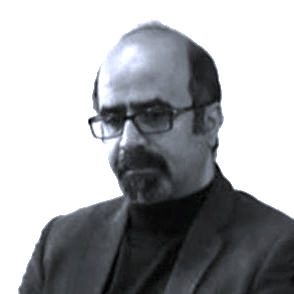 Babak Khazrai, Ph.D
Babak Khazrai, Ph.D Taghi Zarrabi
Taghi Zarrabi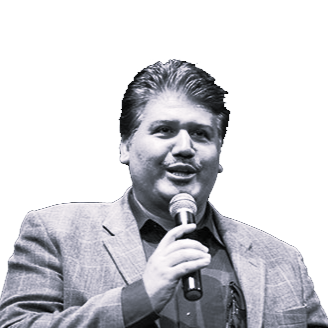 Hamid Askari Rabori, Ph.D
Hamid Askari Rabori, Ph.D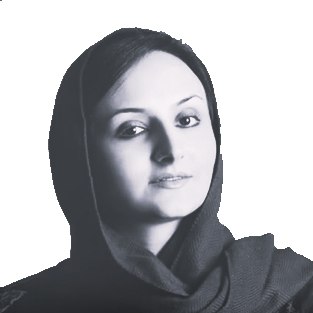 Rebecca Ashooghian
Rebecca Ashooghian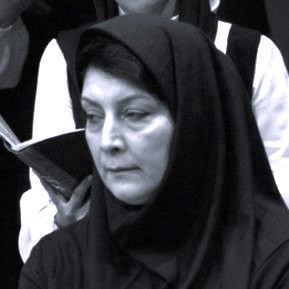
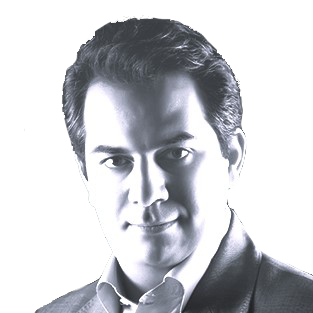
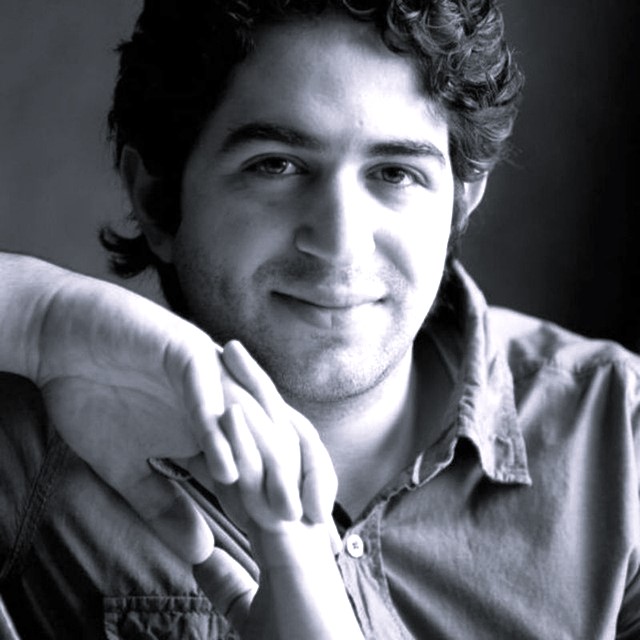 Madjid Tahriri, Ph.D
Madjid Tahriri, Ph.D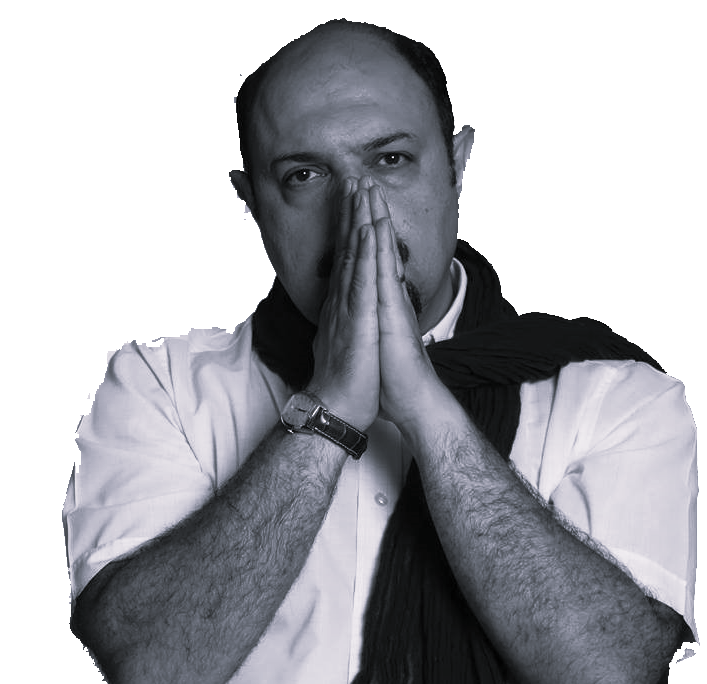 Hamidreza Dibazar
Hamidreza Dibazar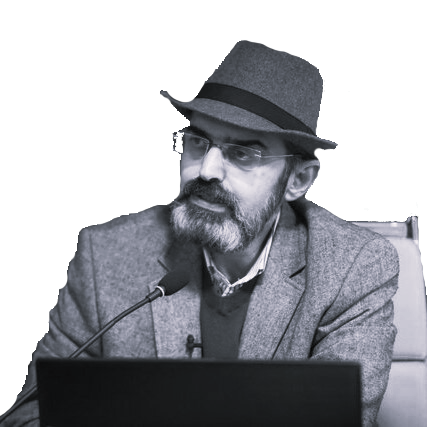 Prof. Mohammad Reza Azadehfar
Prof. Mohammad Reza Azadehfar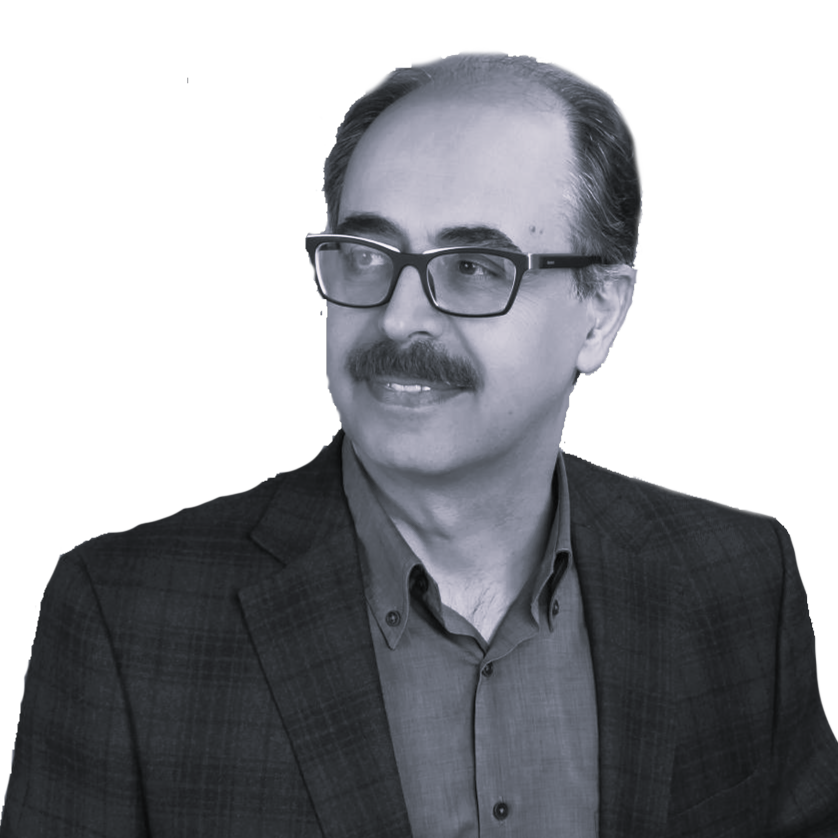 Sayid Hossein Meysami, Ph.D
Sayid Hossein Meysami, Ph.D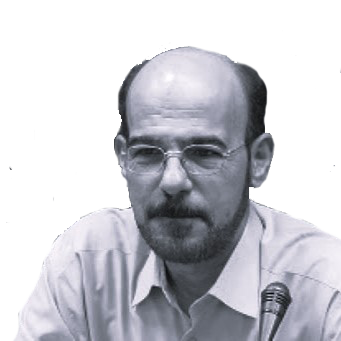 Mahmood Balandeh
Mahmood Balandeh Ehsan Zabihifar
Ehsan Zabihifar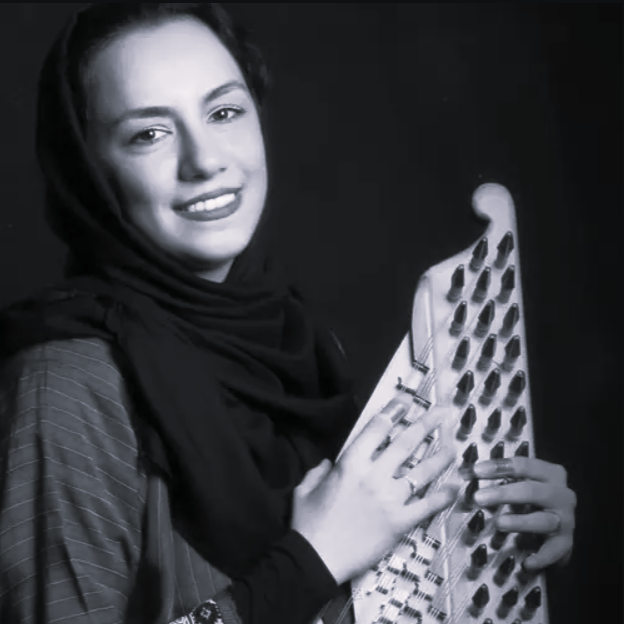 Parichehr Khajeh
Parichehr Khajeh